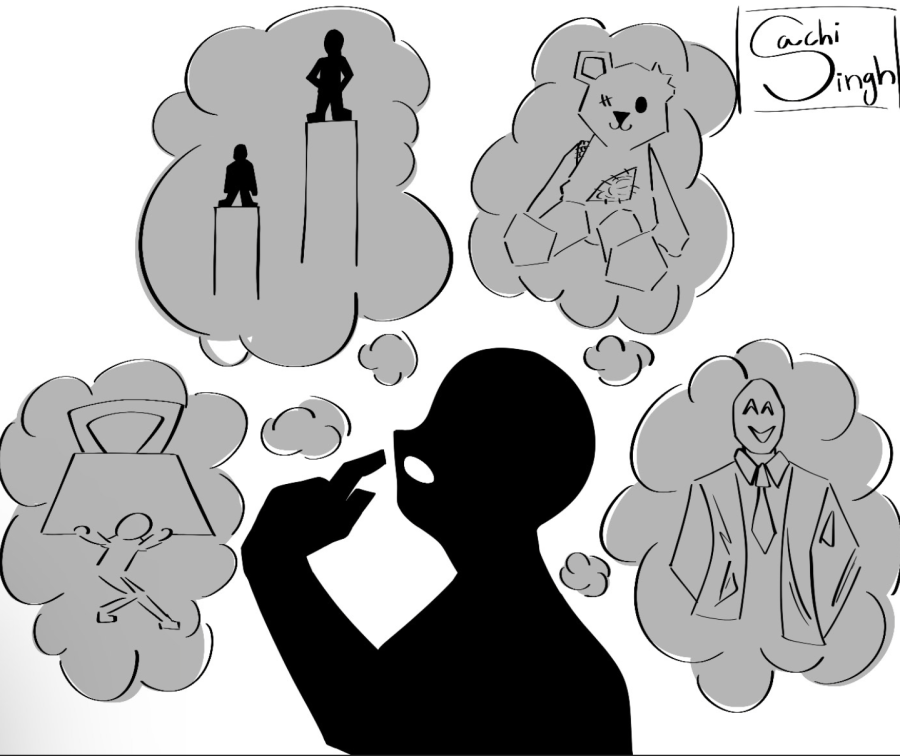To What Extent Do Our Environments Control Us?
June 5, 2023
From a young age, we were told that we are guided and influenced by our circumstances, but how true is it really? The answer is quite remarkable: while our genes do come into play when determining some of our characteristics, we are constantly evolving into different people due to fluctuations in our environment. Sociology has determined that human behavior is influenced by external factors, or situational factors, like our culture, religion, peers, the authorities, and more. Simply stated, situational factors are influences that come not from within us, but from our environment. Situational factors–also known as environmental factors–are the influences that come from our environments. The most recognizable of these factors are peer pressure and authority influence because they are often talked about, but many other factors like responsibility and human tendency also affect our interactions with the world around us. Each environment has its own set of situational factors; some environments, especially those that involve isolation, often amplify the effect of these factors. Most of us are oblivious to our situational factors, but it is important that we attempt to, if not completely, recognize them because they can be used to manipulate us in ways that seem impossible to discern.
We have all felt the pressure to fit in with our social circles; peer pressure is one of the most common, and sadly one of the most effective, situational factors. As early as age 9, group dynamics begin to make their appearance; this is when kids begin to listen to the advice of their peers over that of their parents. According to research, teenagers are the most vulnerable to peer pressure, and as teenagers ourselves, we can definitely point to various circumstances where peer pressure got the best of us. At this age, all of us are learning to set our boundaries comfortably, yet are under the impression that being in the “inner circle” is what we need most. This “inner circle” has a privileged association and promises you something that is widely viewed as an advantage, whether it is wealth, influence, popularity, or even true happiness. When we are in groups or the “inner circle,” we don’t usually question or discredit the actions of the people in our groups: we tend to imagine that any form of deviation from the norm will get us kicked out of the group.
While influences from our friends may be positive, the term “peer pressure” is usually referred to in a negative context and therefore is associated with negative behavior. Neuroticism, a trait or temperament in which one’s disposition to experience negative emotions like anxiety or instability, is known to intensify under conditions involving social pressure. Peer pressure and group influences are very indirect, making them harder to recognize; authority’s influence is more direct, and therefore it’s easier to recognize and get ourselves out of a situation where we are being influenced. But that isn’t to say that authority’s power is anything to ignore or underestimate. As humans, we are sometimes inclined to blindly follow authority figures without regard for the true nature of their commands or for our own responsibility or judgment. From a young age, we are taught that those with more authority than ourselves are more likely to have all the right answers and instructions; we are taught to obey their commands for our own good. While a lot of the time authority figures in our lives like parents and teachers do give us the right information and instructions to lead a good life, this isn’t necessarily true. For example, in 1978, Reverend Jim Jones orchestrated a massacre in which 912 Americans either committed suicide or murder under his orders. We may not believe it, but the power that institutions and authority figures hold is reflected in the compliance of their followers and demonstrates the extent of authority’s influence. Yet there are many examples of rebellion against authority, both silent and outright. In WWII, Hitler had a huge army of supporters, but there were still many who were willing to risk their own lives to save those of the victims. The factor that ties the two above together is the presence or absence of responsibility. We feel safer in groups when we know we are doing something we aren’t supposed to be because of the diffusion of responsibility; the responsibility lies with every member of the group rather than just us. However, as history demonstrates with cases like that of Hitler’s Nazis, our sense of responsibility is easily eradicated in the presence of our peers or an authority figure.
Situational factors like the environments we grew up in as children also affect our perception of the world around us. SDO, or social dominance orientation, is defined as the disposition to favor a hierarchical social structure. SDO is more common among the rich, the ambitious, and the social groups who occupy the majority of an area; these groups of individuals generally benefit from social disparity. People with SDO tend to value the glorious end result rather than the journey itself and usually have low empathy levels. They tend to have authority in most situations, and therefore are used to the power that the hierarchy gives them; once again authority influences their actions. The same authority gives them a stronger immunity to peer pressure as they tend to believe they are “above-average” and don’t require advice from others. While not all of us have SDO, many of us tend to believe in the social hierarchy. The higher you are on the scale, the more people perceive you as knowledgeable and trustworthy. No matter our background or where we are now, everyday situational factors continue to influence our thinking and decision-making abilities.
The way we interact with our environment often impacts our ideologies. SDO is present in people who favor hierarchies; these people often hold powerful positions in their social groups and are benefited from being in the “inner circle.” Yet they are not the only ones who are affected by environmental factors. Wherever interpersonal relationships (relations between humans) are present, interpersonal influence occurs. It’s important to recognize the presence of situational influences in our lives in order to try our best to make our decisions wisely; the awareness could save hundreds of thousands of lives. If the multitude of people brainwashed by the Nazis had stopped and recognized Hitler’s authoritative influence on them and the motive for his commands, many could have rebelled. Even in our everyday lives, learning about environmental factors and recognizing their roles in our lives can contribute to self-growth and awareness. It’s true that situational forces will always remain in the world and cause people to make good or bad decisions, but the bad outcomes can be buffered through the understanding of human interdependence and these environmental factors. Now that you have an understanding of situational factors and human behavior, the next time you’re doing something, try to understand what prompted you to do it; practicing this sort of mindfulness can help you better understand yourself and ensure that you don’t fall prey to negative influences!








































